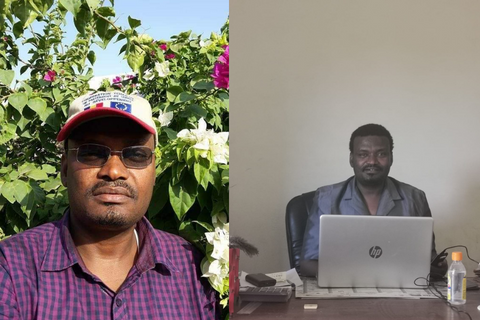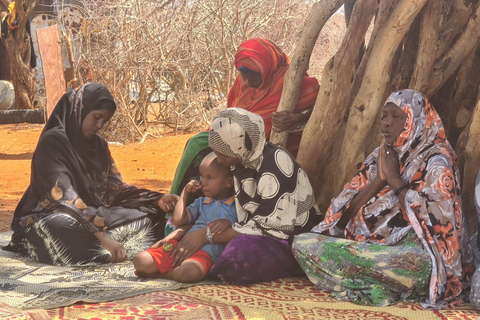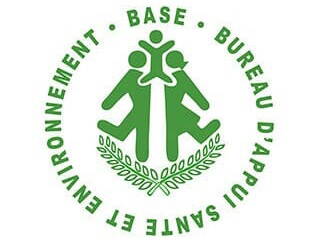"We have never been asked for our opinion"
Since 2019, Women's Hope has been running the project "Strengthened mother-child health care through involvement of village communities" in Chad together with the partner organization BASE. In a written interview with Moustapha Mahamat Malloum, the project manager, and Dr. Ahmat Ousmane Malick, the program manager, we talked about their experiences.
Why is it important to strengthen the engagement of village communities?
Mr. Moustapha - This project is the first of its kind in this part of the country. "This is the first time that we can express our opinion about our health," the participants told me. Communities can play a leading role in the development of their health by identifying health problems, participating with the necessary financial and human resources, and taking greater responsibility. The community should not feel excluded from managing their own health.
Dr. Ahmat - By supporting communities in this process, they are empowered, especially in terms of their rights and responsibilities to the authorities. This support gives them the opportunity to take matters into their own hands. Ultimately, the project aims to give individuals more control over their own health.
In our project, we use the Participatory Community Assessment method to analyze needs. The village communities are divided into different focus groups and asked about their experiences and needs. What are the advantages of the approach, what are the challenges?
Dr. Ahmat - It is an important planning tool, because it takes into account the real problems of the community. But if it is poorly prepared or carried out, misunderstandings or conflicts between caregivers and the villagers can occur.
Mr. Moustapha - The approach helps the community to analyze health problems in depth and also aims to strengthen knowledge and skills at the individual and group levels. Access to and use of health services is improved as a result. The disadvantage is that sometimes disagreements arise between beneficiaries and health workers. After they have understood the functioning of the health system, villagers ask more questions and demand accountability, which leads to frustration here and there.
Is the participatory approach particularly fitting to strengthen women’s health?
Mr. Moustapha – If the community as a whole feels taken seriously, the process can make a difference. Women represent two out of the five focus groups – their needs will surely be heard.
Dr. Ahmat – The process gives women a voice. They can talk about their problems and share their experiences. In the beginning they were sometimes shy, but as soon as issues by which they were affected were discussed, they spoke up and began to tell their stories.
Which parties within the communities (village director, women, village elders) are important to provoke a change in behavior regarding the health of mothers and children?
Mr. Moustapha – Each and everyone needs to be included so that all can thrive. When the wife or the child is sick, the husband suffers as well – and vice versa. As traditional head of the family, the man is the first person in Chad to be called in case of illness. He remains an important part of the puzzle.
Dr. Ahmat – All groups are important and everyone is involved one way or another, but for me, women are the center of attention in this change, and they need to take responsibility und initiate progress.

Moustapha Mahamat Malloum, project manager (left) and Dr. Ahmat Ousmane Malick, program manager.
Partner: BASE
Our project in Chad

Strengthened mother-child health care through involvement of village communities
As of fall 2018, Women's Hope International is partnering with BASE (Bureau d'Appui Santé et Environnement) in order to improve maternal and child health care in the Abougoudam Sanatorium in the Ouaddaï region in the east of the country.


